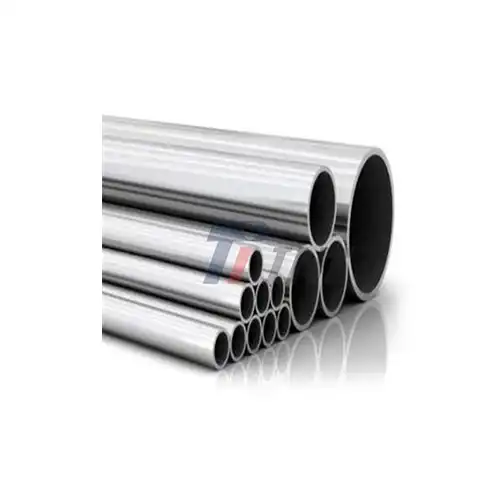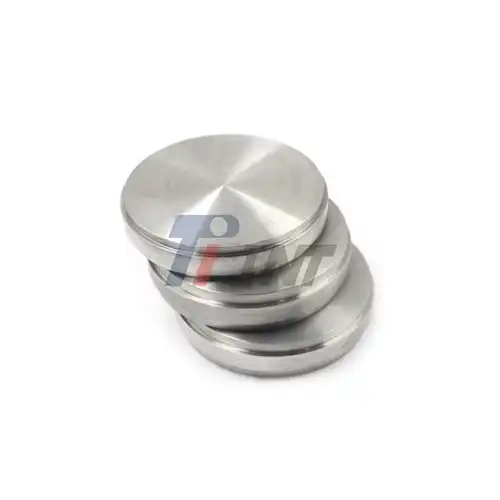The Remarkable Properties of Milled Titanium Bars in Dental Applications
Processed titanium bars have revolutionized the field of dental implantology, advertising a bunch of benefits that make them the favored choice for dental experts. These fastidiously created components gloat an noteworthy cluster of properties that contribute to their victory in dental applications.
Unmatched Strength and Durability
One of the primary reasons milled titanium bar dental implants have gained such prominence is their exceptional strength-to-weight ratio. Titanium alloys, particularly Grade 5 (Ti-6Al-4V) and Grade 23 (Ti-6Al-4V ELI), offer superior tensile strength compared to traditional materials. This momentous quality permits dental inserts to withstand the impressive powers applied amid chewing and gnawing, guaranteeing long-term solidness and functionality.
Moreover, the weakness resistance of processed titanium bars is extraordinary, contributing to their life span in the verbal environment. This property is significant for dental inserts, as they are subjected to rehashed stretch cycles over numerous a long time. The capacity of titanium to stand up to weakness guarantees that dental rebuilding efforts keep up their keenness and execution over time, lessening the require for substitutions or repairs.
Biocompatibility and Integration
Another key advantage of milled titanium bar dental implants is their exceptional biocompatibility. Titanium has a unique ability to integrate with living bone tissue through a process called osseointegration. This natural bonding between the implant and the surrounding bone provides a stable foundation for dental restorations, mimicking the function of natural tooth roots.
The smooth surface finish achieved through advanced milling techniques further enhances the biocompatibility of titanium implants. This refined surface promotes better integration with human tissue and reduces the risk of complications during surgical procedures. The result is a more predictable and successful implant placement, leading to improved patient outcomes and satisfaction.
Corrosion Resistance and Long-Term Safety
Milled titanium bars exhibit excellent corrosion resistance, making them ideal for long-term use in the oral cavity. The oral environment can be particularly challenging due to fluctuations in pH levels, exposure to various chemicals, and the presence of oral bacteria. Titanium's common resistance to erosion guarantees that dental inserts keep up their basic keenness and appearance over time, without debasement or discharge of destructive byproducts.
Furthermore, titanium is non-toxic and free from hurtful substances, making it secure for long-term therapeutic utilize. This property is vital in dental applications, where the embed fabric comes into coordinate contact with living tissues for amplified periods. The utilize of milled titanium bar dental inserts gives peace of intellect for both specialists and patients, knowing that the fabric will not cause unfavorable responses or compromise general wellbeing.
Advanced Manufacturing Techniques: The Key to Precision and Reliability
The superior performance of milled titanium bar dental implants is largely attributed to the advanced manufacturing techniques employed in their production. These cutting - edge forms guarantee unparalleled accuracy, consistency, and quality in each component.
State-of-the-Art Milling Technology
Milled titanium bars are produced using state-of-the-art milling techniques that offer unprecedented levels of precision and reliability. Computer-aided plan (CAD) and computer-aided fabricating (CAM) frameworks permit for the creation of profoundly complex geometries with tight resistances. This level of exactness is significant in dental implantology, where indeed minor deviations can affect the fit and work of the last restoration.
The progressed processing innovation more empowers the generation of customized embed components custom fitted to person persistent needs. This adaptability in plan and fabricating permits dental experts to address a wide extend of clinical scenarios, from single-tooth substitutions to full-arch reproductions.
Strict Quality Control Measures
To ensure the highest standards of quality and safety, milled titanium bar dental implants undergo rigorous quality control processes. Each thing is subjected to diverse stages of testing, tallying dimensional exactness checks, texture composition examination, and mechanical property appraisals. This comprehensive approach to quality affirmation guarantees that each implant component meets or outperforms industry rules.
Many manufacturers, such as Baoji INT Medical Titanium Co., Ltd., have obtained certifications like ISO9001:2015, ISO13485:2016, and EU CE. These certifications demonstrate compliance with international quality management systems and regulatory requirements, providing additional assurance of product reliability and safety.
Continuous Innovation and Improvement
The field of dental implantology is continually advancing, with progressing inquire about and improvement driving changes in materials and fabricating forms. Companies specializing in milled titanium bar dental inserts contribute intensely in development, looking for ways to improve the execution, life span, and biocompatibility of their products.
This commitment to persistent advancement guarantees that dental experts have get to the most progressed embed arrangements accessible. As fabricating methods proceed to advance, we can anticipate to see indeed more noteworthy exactness, effectiveness, and customization in milled titanium bar dental inserts.
Practical Advantages of Milled Titanium Bars in Clinical Settings
The utilize of processed titanium bar dental inserts offers various down to earth preferences in clinical settings, contributing to progressed results and understanding fulfillment.
Versatility and Adaptability
Milled titanium bars can be customized to fit various surgical needs, making them highly versatile in dental applications. Whether used for single-tooth replacements, multi-unit bridges, or full-arch reconstructions, these components can be tailored to meet specific clinical requirements. This adaptability allows dental professionals to address a wide range of patient scenarios with confidence and precision.
Simplified Surgical Procedures
The precision and consistency of milled titanium bar dental implants contribute to simplified surgical procedures. The exact fit of these components diminishes the require for intraoperative alterations, streamlining the embed arrangement handle. This can lead to shorter surgery times, decreased quiet inconvenience, and progressed generally treatment proficiency.
Enhanced Aesthetic Outcomes
The use of milled titanium bars in dental implants supports the achievement of superior aesthetic outcomes. The precise fit and stability provided by these components allow for optimal positioning of the final restoration, ensuring natural-looking results. Additionally, the corrosion resistance of titanium helps maintain the appearance of the implant over time, contributing to long-lasting aesthetic appeal.
Long-Term Cost-Effectiveness
While the initial cost of milled titanium bar dental implants may be higher than some alternatives, their long-term cost-effectiveness is significant. The durability, stability, and low complication rates associated with these implants can reduce the need for future repairs or replacements. This translates to lower long-term costs for patients and increased satisfaction with their dental restorations.
Conclusion
The utilize of processed titanium bars in dental inserts speaks to an apex of modern dental innovation. Their surprising properties, progressed fabricating methods, and viable points of interest in clinical settings make them an irreplaceable device for dental experts looking for to give the most elevated quality care to their patients. As the field of embed dentistry proceeds to advance, milled titanium bar dental inserts are balanced to stay at the bleeding edge of advancement and excellence.
For more data approximately high-quality therapeutic titanium items, counting processed titanium bars for dental applications, it would be ideal if you contact Baoji INT Therapeutic Titanium Co., Ltd. at export@tiint.com. With over 30 a long time of involvement in the inquire about, advancement, and generation of titanium materials, INT is committed to giving cutting-edge arrangements for the therapeutic field.


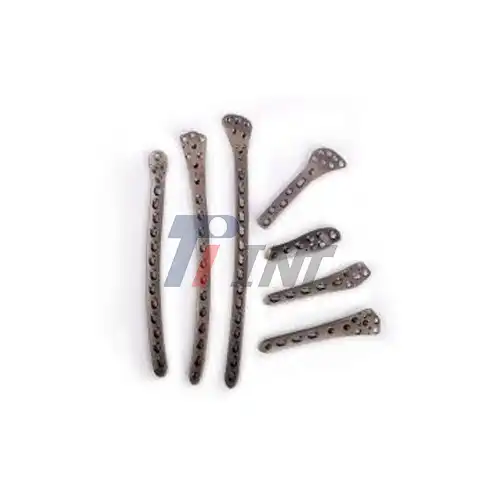
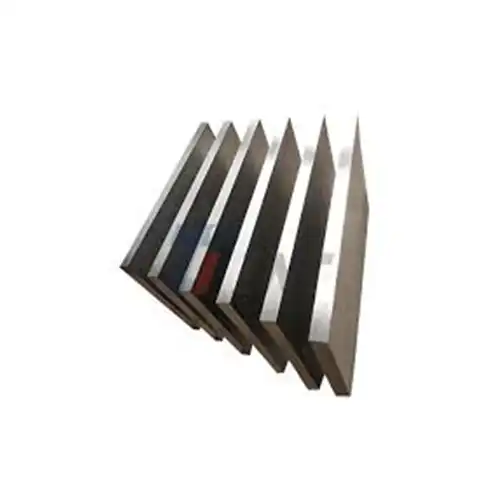






 2025-08-06 15:10:11
2025-08-06 15:10:11
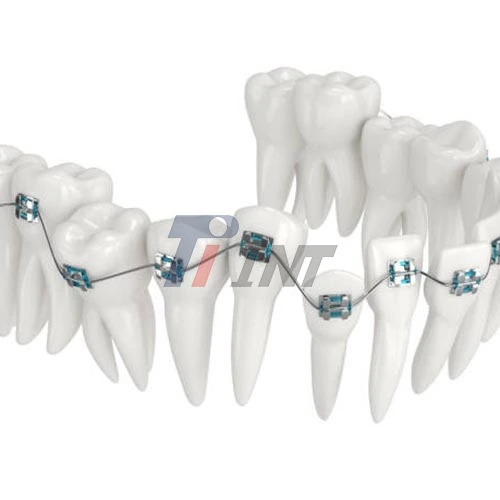
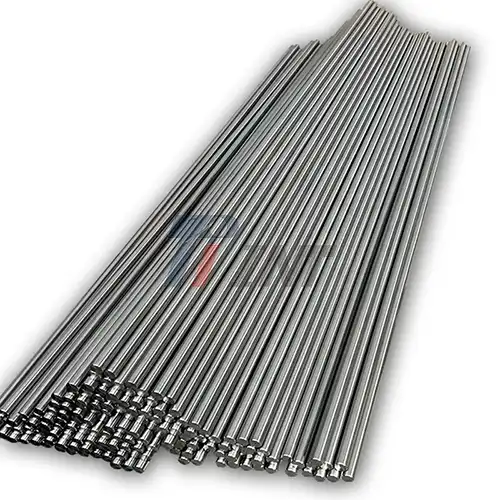
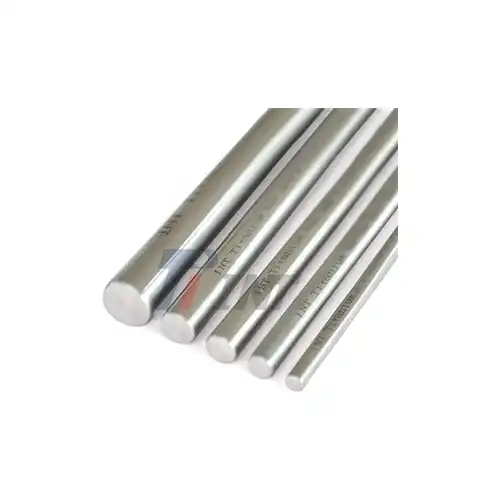
_1753926358324.jpg)
_1752462890412.webp)
_1751958555199.webp)
_1750663525879.webp)
